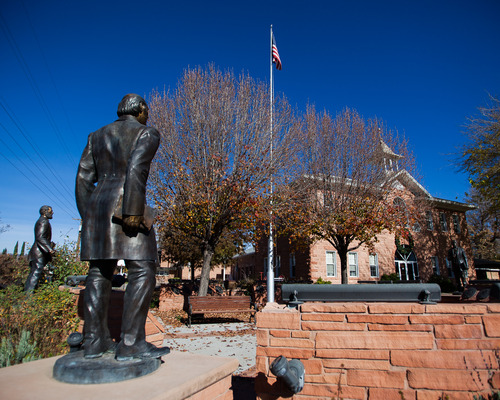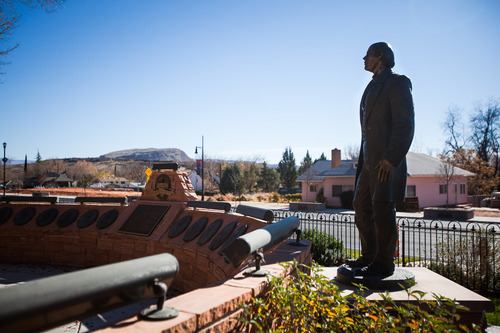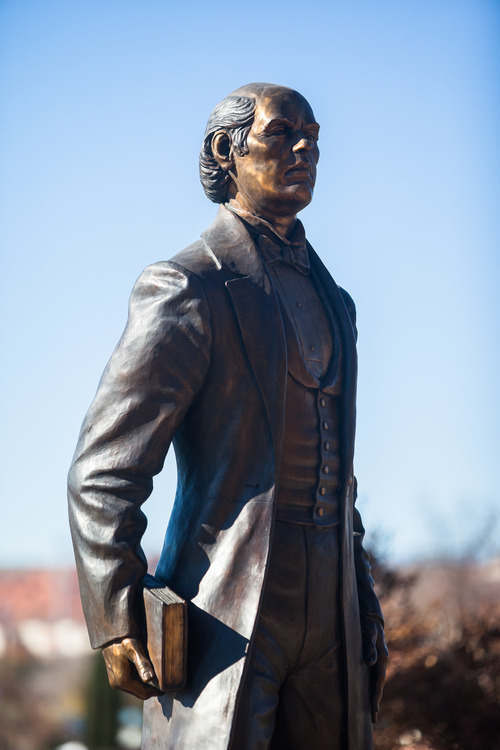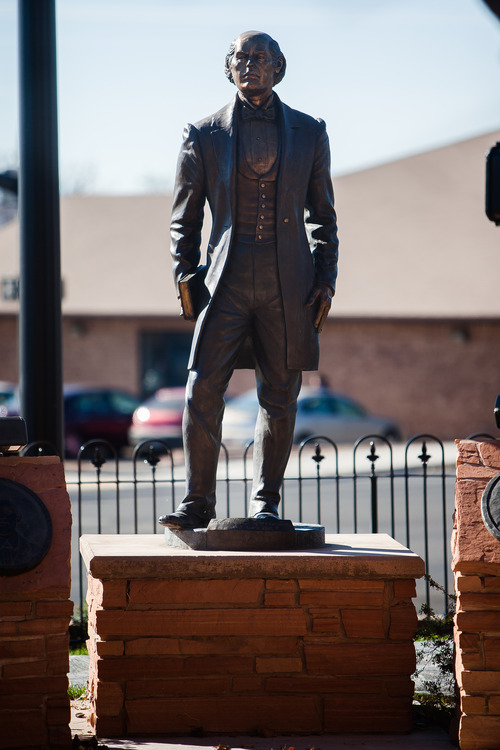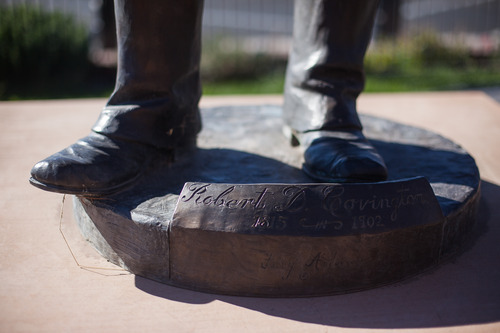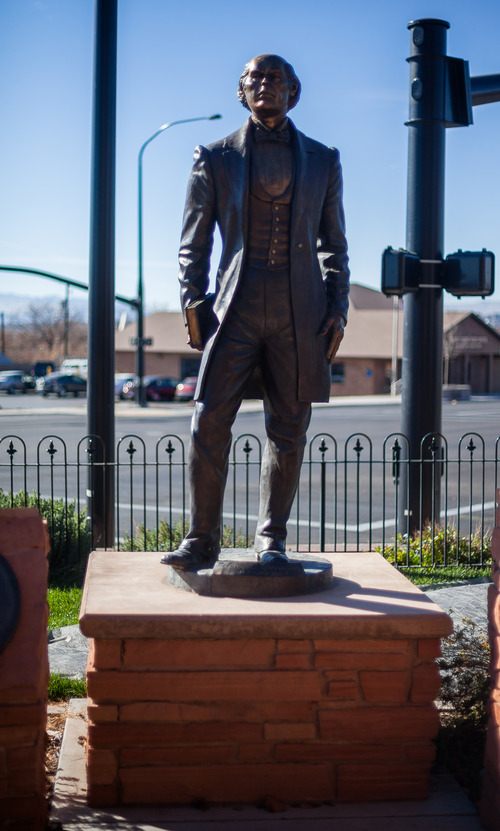This is an archived article that was published on sltrib.com in 2012, and information in the article may be outdated. It is provided only for personal research purposes and may not be reprinted.
In 1857, Mormon convert Robert Dockery Covington was dispatched by church leaders to Utah's Virgin River Basin to lead a "cotton mission" because of his experience on Mississippi plantations.
Not as well known is historical evidence that Covington, a revered figure in Utah history who died in 1902, and his fellow Washington County settlers included former slave owners, drivers and Rebel sympathizers during the Civil War. Settler Albert Washington Collins enjoyed recounting how he raped and used lethal violence on disobedient blacks and celebrated Confederate battlefield victories, according to a narrative by fellow settler George Hicks.
"It puts the skids to this happy fantasy that [Utah's Dixie has] no connection to the Confederacy," Utah historian Will Bagley said. "The name Dixie reflects the sympathy that the southern Utah and the Mormon people felt for the Confederacy."
Many participating in the debate over Dixie State College's future name maintain the region earned its distinctive moniker from its warm climate and cotton farming heritage, not from any affiliation with the South's racist traditions. The full picture is much more complicated, Bagley contends.
"The denial of the brutal realities connected with the cotton industry in southern Utah are as bad as the defenses of southern slaveocracy in 'Gone with the Wind,' " he said. "The whole purpose was to capitalize on the Civil War by raising cotton in southern Utah and ship it across the Great Plains, and make money off a nation's suffering."
In his book I was Called to Dixie, historian Andrew Larson describes how those who settled Washington County were "steeped in the lore of cotton culture."
According to a biography by one of Covington's descendants, his first three children were born at the "large successful plantation" he had with his father in Noxubee County, Miss., which had been built "with the help of slave labor."
The history is on the website of the charitable Winslow Farr Sr. Organization, based in California. One daughter born on the plantation died as an infant; the other, Emily Jane Covington, born in 1843, married Winslow Farr Jr. in Washington County in 1858.
The 1840 Census lists R. Covington in Noxubee County. The only Covington in the county at that time, he is listed as owning eight slaves.
After Covington converted to the LDS faith, the family joined other church members in Nauvoo, Ill., and later in the Salt Lake Valley, according to the biography on the organization's site.
The church called Covington, a former slave owner, to lead a company of 28 families, many of them new immigrants from the South, to join a cotton-growing community in what became known as the town of Washington, according to Larson's book.
Hicks' narrative about settling the area appears in Playing with Shadows: Voices of Dissent in the Mormon West, which Bagley co-edited with Polly Aird and Jeffrey Nichols. He lambastes Collins.
"He used to often entertain his hearers at places where people were gathered for public work, such as dam building or ditch making, by narrating acts of cruelty which he had committed in whipping slaves while on plantations in the South," Hicks wrote.
Collins boasted of his sexual conquests of slave women and girls, the narrator recalled. Once he described how he forced himself on a married woman after whipping her husband.
"We need to step up and acknowledge what really happened. It's not pretty and it's not inspirational, but it's what really happened," Bagley said.
Correction: The print version of this story, and a version previously online, erroneously stated that Washington City LDS bishop Robert Dockery Covington admitted to whipping slave men and raping women. The historical source material for the story instead identified Albert Washington Collins as the settler who made the statements. Covington's descendants acknowledge he owned slaves, but say their family-written histories report he treated them well and freed them before he immigrated west from Mississippi.


